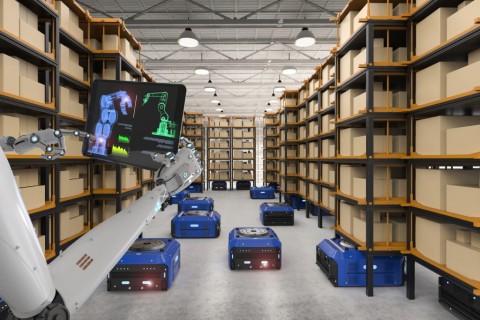Going digital has become top of mind for most supply chain leaders these days. But finding success through digital transformation is still an elusive venture. According to recent research by the Korn Ferry Institute, all 100 senior supply chain executives the firm surveyed said digital supply chains have the potential to revolutionize businesses. Seventy-four percent admitted they still have a long way to go before that becomes reality. So, what’s standing in their way (and possibly yours as well)?
Lack of a clear digital supply chain strategy
Nearly half of respondents noted that while they have started on digitization, their strategy only considers the impact on the business, not how to implement digital in the supply chain. This could be due in part to lack of engagement at the executive and board level. “The missing capability is understanding of supply chain at the board level. Supply chain is seen as cost down, whereas we should see it as a new revenue model generator. Everything comes back to the leadership challenge; why are we failing to get the right leadership at the top?” called out Janet Godsell, University of Warwick’s professor of operations and supply chain strategy at Warwick Manufacturing Group, in the report. “UK boards are dominated by commercial and financial backgrounds, and even if you change the gender and ethnic mix, this does not overcome every angle of the lack of diversity. fficers are a relatively new addition to the executive board, but are not usually on the main board at the top table.” But a lack of a clear digital strategy isn’t the only barrier to success.
Limited availability of digital talent
Just over half of survey participants stated they have a formal leader in place for their supply chain digitization movement, with many feeling top digital talent is hard to find and attract. As Korn Ferry points out, Generation Y gets bored easily, and keeping them engaged at your company adds to the challenge. The consensus from the survey results is that hiring talent with the necessary skills is the preferred way to build and develop digital capabilities in the supply chain, with internal training coming in second. However, the survey also notes a lack of financial commitment to develop those skills internally, with two out of three executives allocating less than 10 percent of their learning and development budget to digitization. Those with clear digital leaders in place and a plan to attract new talent or develop existing resources are ahead of the pack. A staggering number—three out of four respondents—said they haven’t formally assessed the digitization readiness of their existing supply chain employees, and roughly half have no plans to do so.
Next steps toward digital supply chain success
Supply chains have transformed over the past decade, moving front and center into a strategic role within organizations. But that lack of representation at the executive and board levels is preventing the supply chain’s rise to digital transformation. Another stumbling block is the mentality that going digital means just slapping digital capabilities onto traditional supply chains, which results in hybrid models and added complexity. As Korn Ferry puts it, “Even companies that embrace the value of an effective and sufficient supply chain often stick with incremental changes rather than choosing a high-risk/high-reward transformation towards a truly integrated, re-invented supply chain whose DNA is fundamentally digital.” Is your organization’s supply chain truly ready to go digital? Let us know in the comments area below.





Discussions
One thing I did not see in your article is the definition of what a digital supply chain really is. I find it means different things to different people. Can you please provide your definition, and how this differs from traditional supply chains being used currently?
Thanks-
While we talk about digitizing supply chains using different techniques like AI, IOT i feel this is still in nascent stage and not much advancement has been made in this regard with respect to supply chain. Can you suggest any organization who has successfully implemented all this or planning to implement.
Since Digital Supply Chain brings in supply chain integration in the true sense, the research work would definitely help organizations make the correct choice.
Leave a Reply